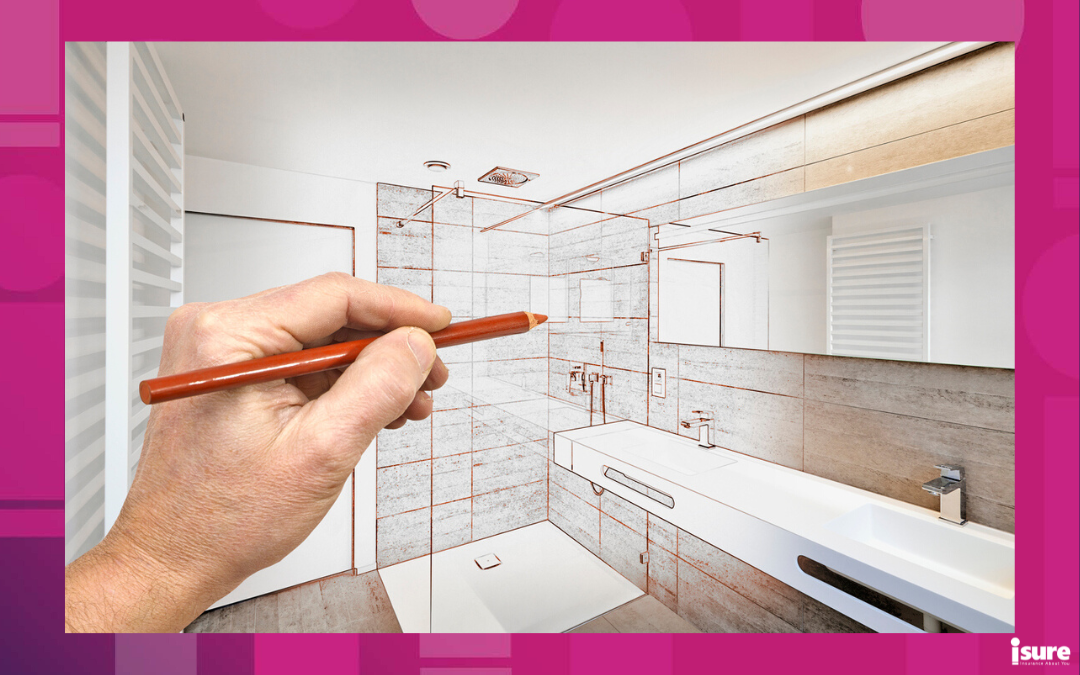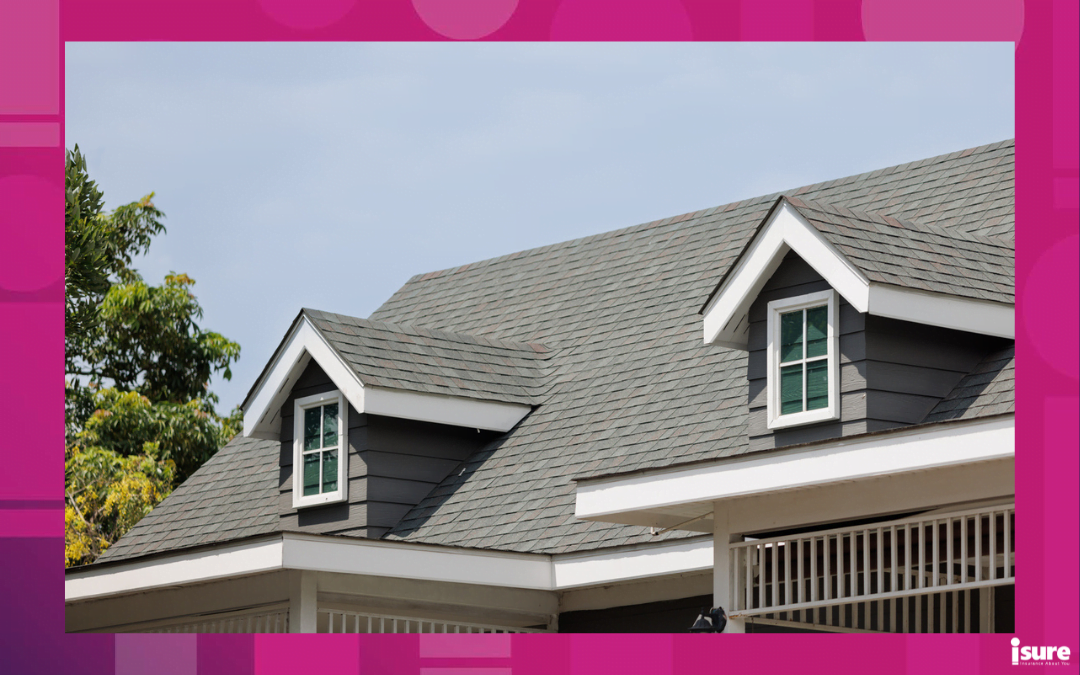Whether it’s to make some extra money by renting or to house a family member, having a guesthouse on your property comes with many perks. However, adding a new home to your property is, unsurprisingly, a lot of work. Additionally, it can be a pricey renovation. With this being said, renting out a guesthouse can result in you making back the money spent at a pretty quick rate. So, are you still thinking of adding a guesthouse to your property? From insurance to by-law measures, isure has everything you need to know below.
What qualifies as a guesthouse?
Before we get into what is required to build a guesthouse on your property, we must first specify what a guesthouse is. According to Ontario.ca, a guesthouse is a second self-contained unit with a private kitchen, bathroom, and sleeping area. It’s also known as an Additional Dwelling Unit (ADU) This means that if you decide to simply rent out a room or basement in your home with common spaces, it does not count as a guesthouse. This is because it does not contain a bathroom or kitchen separate from the one the homeowner uses.
For the most part, guesthouses are additions made after the home is built. These are occurring in more populous cities where renting is a popular means of living, such as Toronto. However, homes with guest units can be located anywhere! These dwellings may be located within your home or, in some situations, separately on your property. Locations for these units are usually above a laneway garage or in a coach house.
What to know before building a guesthouse
As mentioned above, a guesthouse is a terrific method of providing a home for a family member who can’t afford to enter the housing market. Or, quite simply, to make some extra money when paying off your mortgage. However, many people are unaware of just how many factors to take into consideration before you begin building.
To start, you will first need to speak to your local municipal planning and building department. This is a requirement to find out if you are granted allowance to add a second unit to your property. From there, they can ask any questions concerning the process and local zoning.
What are the Building Code requirements for a guest home?
Before getting started with building your guesthouse, you need to understand the minimum construction standards on how to build one on your property. In some cases, it is preferred to build beyond the minimum requirements. This can come with many advantages, including more amenities for your guesthouse. Building code requirements will affect the following aspects of the home:
- Age of your house
- Guesthouse location
- Room size
- Ceiling height
- Windows
- Plumbing
- Septic system
- Heating and ventilation
- Electric and lighting
- Fire safety and alarms
- Carbon monoxide alarms
- Emergency exits
Read more information about Ontario guesthouse requirements.
Municipal zoning and other by-laws
Knowing your municipality’s zoning by-laws is crucial before beginning to add a guesthouse on your property. These by-laws will greatly affect the construction. It is important to ask your local planning department about the following:
- Standards and zoning requirements for second units. This may include parking requirements and any entrances or exits to and from the property.
- Find out if you should apply for re-zoning or a minor variance.
- Should your second unit be licensed or registered with your municipality?
- Any other agreements or approvals that may be required.
Building permits for a guest home
Of course, you will need to apply and obtain a building permit before adding a guest unit to your house. The following is needed to submit your application:
- A completed application form.
- Construction drawings (generally, two sets of drawings are needed).
- Payment of the building permit fee, if permitted.
You should also check with your municipality to find out if you need to hire any outside contractors to do the work. Once your application is submitted, it generally takes about 10 business days to discover if you have been approved or not.
Building inspections during guesthouse construction
Once you receive your building permit, you can begin building! However, many rules must be followed during the building process., including building inspections. Building inspections from the municipality must be done through various stages of construction. The inspections will include looking over the framing, insulation, plumbing, and interior finishes to ensure they are up to the building code. As the homeowner, you are responsible for informing your building department when each stage of construction is ready for inspection.
These building inspections are done to ensure your second unit is deemed a safe place to live for your tenants.
Insurance for guesthouses: What type of coverage do you need?
When your guesthouse is complete, you must make sure your home insurance is properly adjusted to match the coverage of the new dwelling on your property. Many people think it is okay to not inform their insurance provider regarding their secondary suite in fear of higher home insurance rates. However, this is not permitted because if you’re caught or need to file an insurance claim, your policy may be completely null and void. We urge you to contact your isure or insurance broker as soon as possible to let them know of any changes to your property.
Generally, most home insurance policies will cover damages from a rental suite. Of course, this will only be valid if your insurance provider is aware of its existence before building. It’s important to note that the guesthouse may have some coverage under a home policy as a detached structure IF it is on the same property as the main home. An example of this is if a pipe bursts in a rental space on your property. If you have adequate coverage, your homeowners’ insurance may cover this.
However, this differentiates from simply renting a room or basement in your primary dwelling. In situations like this, residential landlord insurance may be more suitable for your needs, and we highly suggest this coverage. Additionally, you will need Landlord Insurance if the secondary guesthouse or property is not located on the property of your primary residence. Speak with your isure broker today to clarify and properly allocate your insurance protection.
Make sure your tenant has Tenant insurance coverage
It is important to make sure your tenants are protected with Tenant Insurance once they move into your guesthouse. If a peril, such as a fire, damages their unit, their material losses and liability will not have coverage under your home insurance policy. Because of this, some insurance providers will require renters to have their own liability coverage.
What’s the difference between a guesthouse and an Airbnb?
The differences between a guesthouse and an Airbnb can be deciphered in a few ways. Generally, an Airbnb will host someone temporarily, anywhere from a weekend to upwards of six months. A guesthouse, on the other hand, will generally be built to house someone more permanently. Whether it is a family member or another tenant, it will usually follow Ontario’s rental guidelines. This means it will usually involve the signing of a lease while following other rental procedures.
When it comes to Airbnb, you can generally set up any spare bedroom in your home to lodge visitors who are traveling or need a temporary living situation. This applies to renting out a unit for a longer period, as well. A guesthouse typically comes with all the amenities needed, each separate from your own. For example, a guesthouse will have its own kitchen, bedroom, and bathroom, separate from the ones that you and your family members use. Regardless of whether or not the guesthouse is attached to your home or not, if it comes with these amenities, it is considered a guesthouse!
How much will a Secondary Dwelling Unit cost?
Just like building a primary home, the price of your secondary dwelling unit will depend on a variety of factors. This includes the size, different amenities, and any extra labour costs. Generally, most people can expect to pay anywhere between $60,000 to $225,000 for their secondary dwelling unit. The higher-priced secondary dwelling units are generally detached and built separately from the home. When rented out, these guesthouses will usually make back any money quickly that was spent during the building process, making it worth the investment.
Hopefully, with this information, you can be well on your way to adding a guesthouse to your home for your children, grandchildren or future tenants. Remember, if you plan on undertaking this big project, contact your isure broker to ensure you have adequate insurance coverage every step of the way. Contact us or request a quote today!





